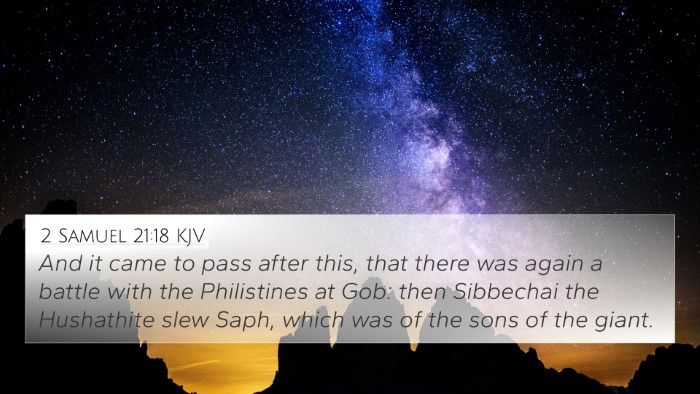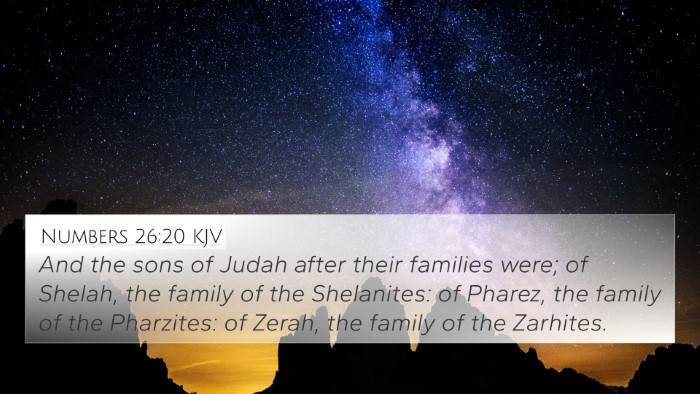Understanding 1 Chronicles 27:11
Verse: "The eleventh captain for the eleventh month was Benaiah the son of Jehoiada, of the sons of the priests; and in his course were twenty and four thousand."
Summary of Interpretation
This verse describes a specific military leader, Benaiah, and his responsibility during the eleventh month. He is notably identified as a priestly figure, which holds significance in understanding the intertwining roles of the military and priesthood in ancient Israel.
Insights from Commentaries
The insights from public domain commentaries reveal several important themes and interpretations regarding this verse:
- Matthew Henry's Commentary: Matthew Henry highlights the organizational structure of King David's army, emphasizing the importance of leadership and service in maintaining order in Israel. He notes that Benaiah, being a priestly family member, reflects the integration of spiritual duties with military responsibilities.
- Albert Barnes' Notes: Albert Barnes points out that Benaiah's appointment signifies the trust placed in him, as leadership roles were often based on capability and character. He underscores the aspect of dedication to duty, as shown by the substantial number of troops under Benaiah's command.
- Adam Clarke's Commentary: Adam Clarke discusses the significance of Benaiah being from a priestly lineage, suggesting a divine approval of military undertakings. He further connects this with the overall governance and theocracy established by David, reflecting God's guidance in the army's leadership.
Thematic Connections
This verse can be understood through the lens of several biblical themes and interconnections:
- Military and Spiritual Leadership: The dual role of Benaiah reflects the biblical principle of integrating faith with daily responsibilities, illustrating how leaders can serve both God and their nation.
- Divine Order: The organization of the military under David shows God's intended order in the affairs of state, a theme prevalent throughout biblical narratives.
- Service and Duty: Benaiah’s willingness to lead a group of 24,000 soldiers showcases a servant leadership model that resonates through later scriptures involving humility and dedication.
Cross-References
1 Chronicles 27:11 connects with various other biblical verses that enhance its understanding:
- 1 Chronicles 11:22: Details the exploits of Benaiah, showcasing his valor.
- 2 Samuel 23:20-23: Highlights Benaiah’s achievements, emphasizing his prowess as a key warrior.
- Numbers 1:47-54: Describes the organization of the Israelites, aligning with the themes in 1 Chronicles.
- Psalms 20:7: Where trust in the Lord is highlighted, paralleling the reliance on divine leadership.
- Hebrews 7:14: Discusses the priestly lineage from Judah, drawing connections to Benaiah’s priestly heritage.
- Exodus 28:1: God’s instruction to set aside Aaron and his sons for priestly duties, emphasizing spiritual leadership.
- Deuteronomy 1:15-18: Depicts the appointing of leaders for Israel's governance, paralleling the military organization seen in Chronicles.
Tools for Bible Cross-Referencing
To deepen understanding and analysis, various tools and methods exist for cross-referencing in biblical studies:
- Utilizing a Bible concordance to find terms and themes.
- Implementing a Bible cross-reference guide for thematic studies.
- Engaging in cross-reference Bible study to explore interconnected verses.
- Learning how to use Bible cross-references effectively for deeper understanding.
Conclusion
1 Chronicles 27:11 serves as a rich text that illustrates the complex relationship between military and priestly duties, highlighting key biblical themes of service, organization, and divine order. By examining this verse alongside other passages and using cross-referencing tools, one can gain a more comprehensive understanding of its significance within the broader biblical narrative.





